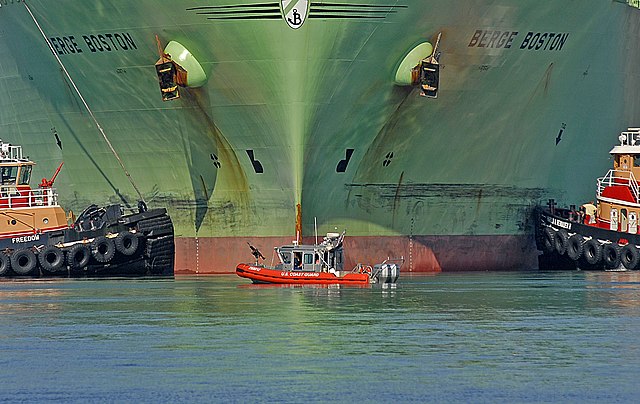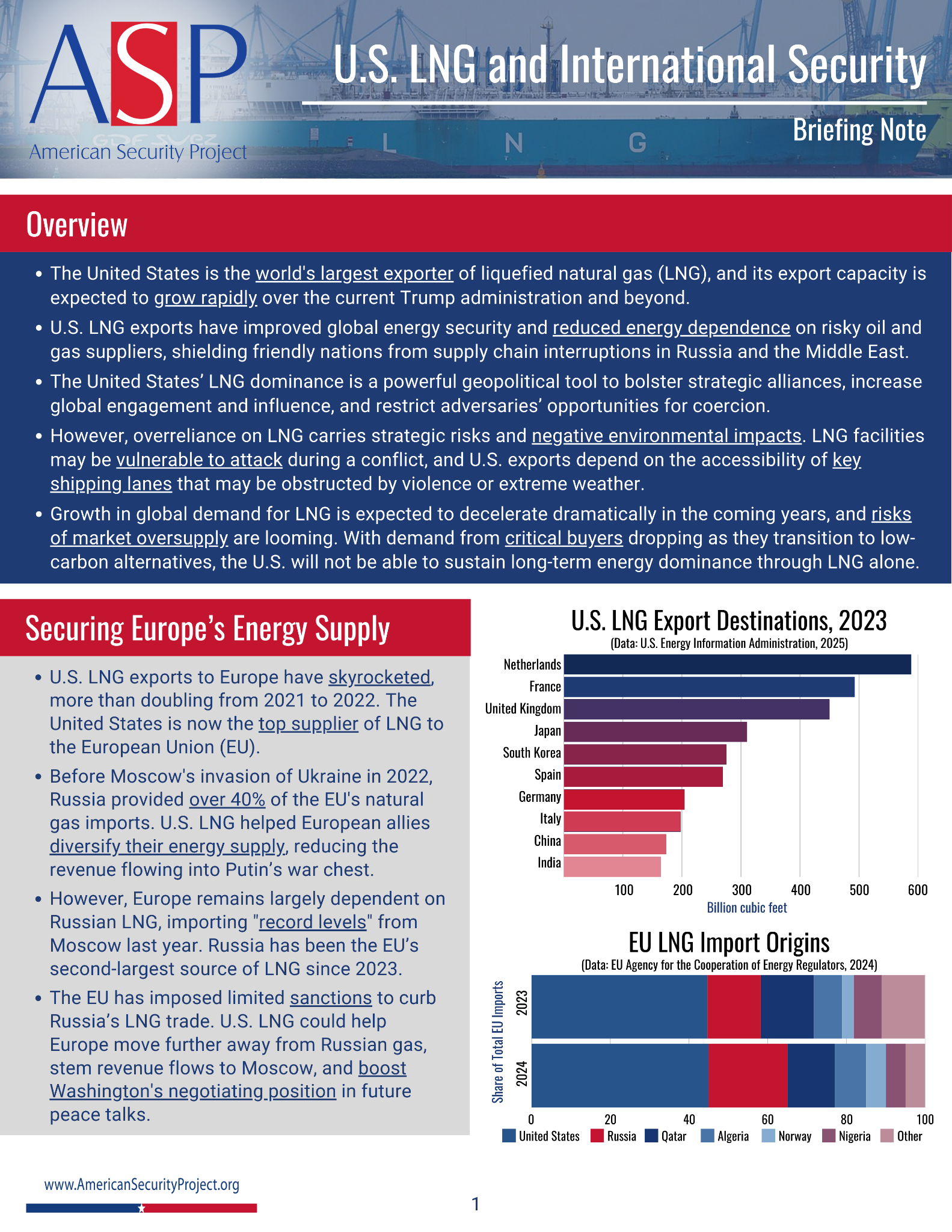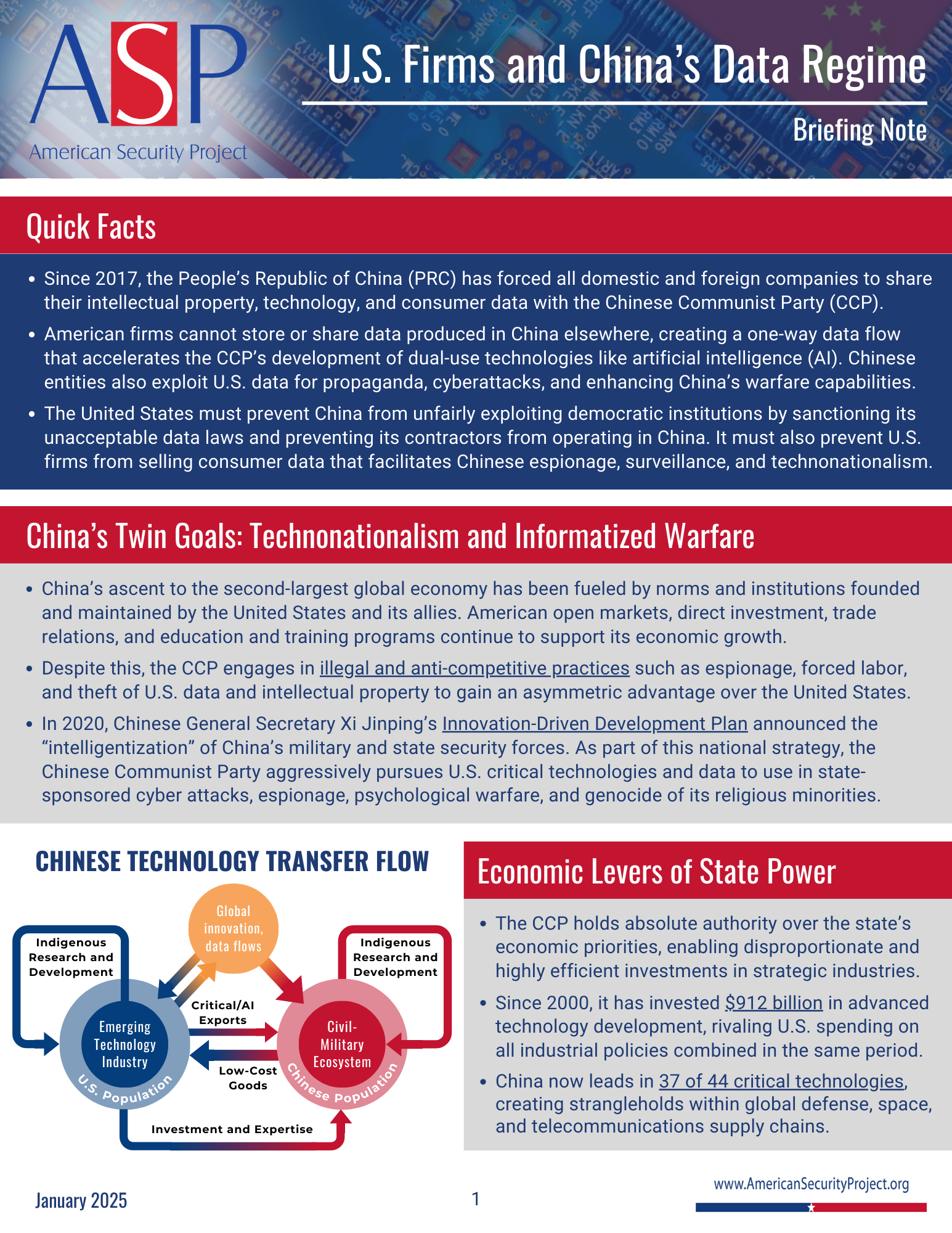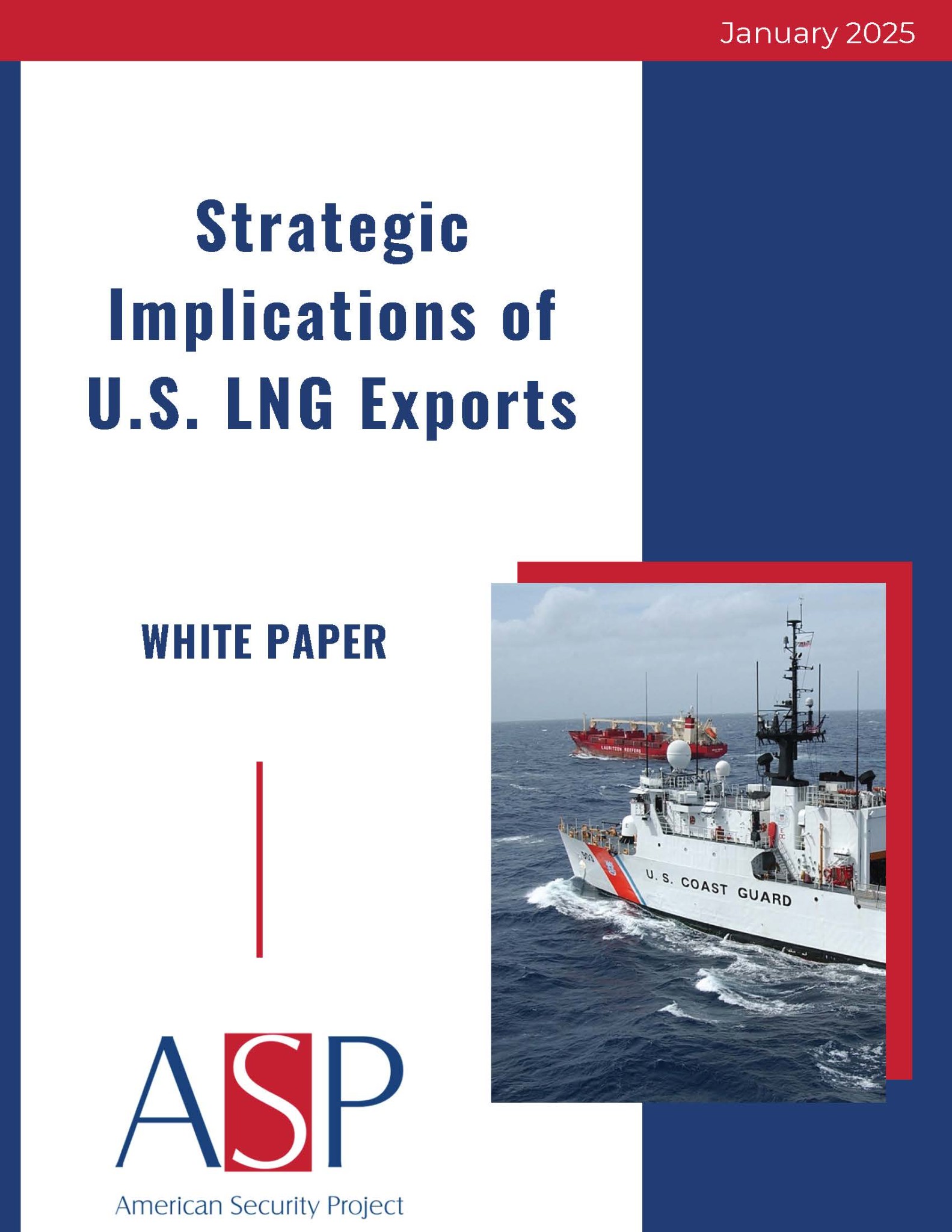On November 14, ASP Research Analyst Katherine Yusko discussed the current state of U.S.-China EV competition on DW's "The Dip" podcast.Read more...


On November 14, ASP Research Analyst Katherine Yusko discussed the current state of U.S.-China EV competition on DW's "The Dip" podcast.Read more...

The recent joint EU-China press statement on climate signifies a new era of energy competition—one that the U.S. is set to lose.Read more...

Rare earth elements, or “rare earths,” are essential components in the technological innovations and complex computer systems spearheading the U.S. and China's technological arms race. Read more...

Every solar panel and battery connected to the U.S. grid depends on inverters, which have historically been produced by mostly Chinese manufacturers. In May 2025, U.S. experts found undocumented radios embedded in some Chinese-made inverters, allowing remote access that bypasses firewalls. These hidden components pose a grave cyber-physical threat. Official responses have been ongoing, as SolarEdge achieved BABA compliance, and Florida utilities are sourcing non-Chinese hardware. Congress is continuing to push procurement bans. But the real opportunity can be seized by raising baseline security standards and coordinating with allies. The U.S. can reshape supply chains before the next threat emerges, not after. Read more...

ASP held an online webinar discussing the opportunities and challenges at the intersection of U.S. liquified natural gas (LNG) and international security.Read more...

As U.S.-China trade tensions rise and U.S. LNG export capacity expands, Washington must work with allies and industry partners to strike deals that favor U.S. gas companies and limit China's political leverage. Read more...

U.S. LNG exports are a powerful geopolitical tool with the capacity to bolster strategic alliances, increase global engagement and influence, and restrict adversaries' opportunities for coercion. However, overreliance on LNG carries serious strategic risks and negative environmental impacts for the United States and its partners. Read more...

The People’s Republic of China forces all domestic and foreign companies to share their intellectual property, technology, and consumer data with the Chinese Communist Party. The United States must prevent American companies from selling U.S. consumer data in exchange for access to Chinese markets. Read more...

Affordable U.S. LNG exports have facilitated a global shift away from coal and play a critical role in diversifying global energy supplies, and reducing reliance on adversarial energy suppliers. However, new vulnerabilities are emerging. Read more...

On November 1st, the United States and Republic of Korea signed a Memorandum of Understanding on Principles Concerning Nuclear Export and Cooperation, a provisional agreement to “promote the expansion of peaceful nuclear energy.” This agreement will facilitate research cooperation, which can tackle some of the largest issues in nuclear power, while simultaneously bolstering each countries’ economic security. Read more...